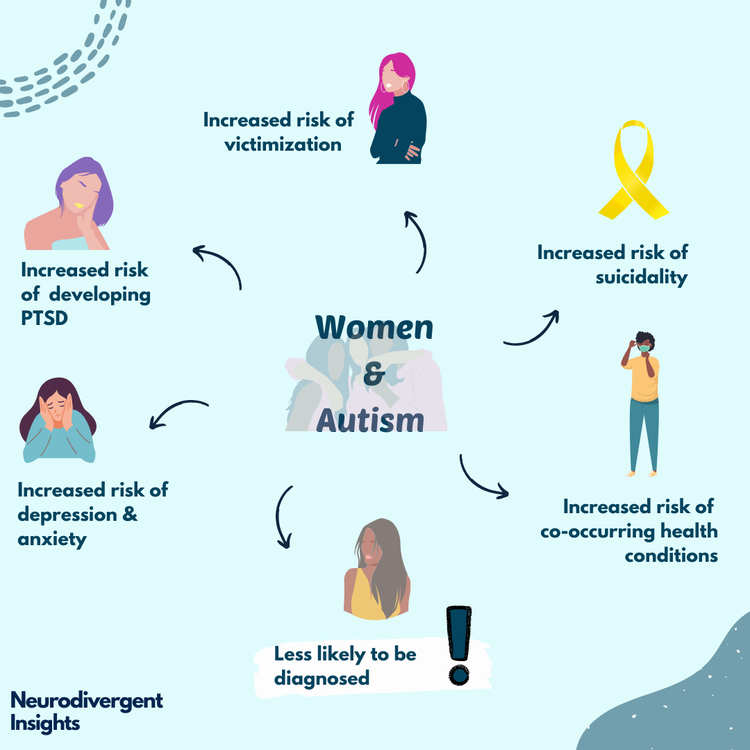Recognizing the Spectrum: A Comprehensive Guide to Autism Recognition
Recognizing the Spectrum: A Comprehensive Guide to Autism Recognition
Blog Article
Raising Recognition Concerning Autism: the Importance of Very Early Medical Diagnosis and Intervention
The discussion bordering autism range problem (ASD) requires a concentrated exam of early medical diagnosis and treatment strategies. Identifying the initial signs of autism can be crucial in assisting in timely accessibility to customized support solutions, which are vital for supporting developing turning points. Very early treatment not only boosts interaction skills yet also cultivates social integration, inevitably enhancing the lifestyle for afflicted people. As we discover the effects of raised awareness and aggressive procedures, it becomes important to take into consideration the broader societal impacts and the duty of neighborhood fit supportive atmospheres for those on the spectrum.
Recognizing Autism Range Condition
Exactly what is Autism Range Disorder (ASD)? Autism Range Condition is a complicated neurodevelopmental problem identified by a series of obstacles in social communication, interaction, and behavior. It is termed a "range" due to the fact that it includes a wide range of signs and symptoms and degrees of disability, which can differ dramatically from one person to an additional. ASD materializes in early childhood years, with signs usually showing up before the age of 3.
The etiology of ASD continues to be multifactorial, including a combination of ecological and genetic impacts. Study suggests that individuals with ASD may show atypical neurodevelopment, leading to distinctions in brain connectivity and feature (autism). These variations can impact cognitive processes and lead to difficulties in recognizing social cues, sharing feelings, and participating in mutual communication
Moreover, people with ASD may show recurring habits and restricted interests, which can additionally contrast with typical developing trajectories. Recognition of the diverse discussions of ASD is important for cultivating an inclusive society and advertising effective assistance techniques. By progressing our understanding of ASD, we can much better attend to the demands of those affected and establish interventions that improve their lifestyle.
Early Indications of Autism
Very early identification of Autism Range Problem (ASD) is important, as acknowledging the signs in kids can bring about timely treatments that considerably enhance end results. Caretakers and parents should recognize several very early indicators that may recommend a youngster gets on the spectrum.
Among one of the most usual early signs is an absence of eye contact. Kids with ASD may not react to their name being called or might show restricted rate of interest in social communications. Postponed speech or an absence of spoken communication can also be a measure, as some kids might not begin to talk until later than their peers or may have difficulty initiating conversations.
Repetitive behaviors, such as hand-flapping, shaking, or insistence on sameness, are extra indicators to think about. A youngster may exhibit uncommon reactions to sensory stimulations, such as being extremely sensitive to audios or structures. A lack of imaginative play or problem in engaging with peers can be observed.
Acknowledging these very early indications is essential for experts and parents alike, as it can prompt more evaluation and, if needed, the growth of try this out personalized strategies to sustain the kid's growth and development. - autism
Advantages of Early Diagnosis
Timely identification of Autism Range Condition (ASD) not only facilitates early intervention yet likewise unlocks countless benefits that can considerably enhance a youngster's growth. Among the main advantages of very early medical diagnosis is the chance for tailored helpful hints support, which makes sure that kids obtain the details sources they require to flourish. This personalized approach can cause enhanced social abilities, interaction capabilities, and emotional regulation.
In addition, early medical diagnosis permits households to access instructional and therapeutic services earlier, creating a structure for long-lasting learning and adaptation. Kids that receive very early treatment are frequently better furnished to create important life skills, which can cause greater independence as they age.

Effective Intervention Strategies

An additional reliable strategy is using Social Abilities Educating (SST), which assists youngsters with ASD learn suitable interactions and establish relationships. Incorporating role-playing and video modeling can boost these skills in a regulated environment. Furthermore, Very Early Beginning Denver Model (ESDM) incorporates behavior and developing methods for kids aged 12 to 48 months, advertising cognitive and psychological growth with play-based activities.
Speech and language therapy is also essential for resolving interaction challenges, enabling kids to express their demands effectively. Lastly, sensory integration treatment can aid children manage sensory sensitivities, allowing them to engage even more totally in their atmospheres. By carrying out these targeted intervention caregivers, experts and strategies can considerably improve outcomes for youngsters with ASD, guaranteeing they reach their complete capacity.
Building Supportive Areas
Developing a why not try this out helpful neighborhood for individuals with Autism Range Problem (ASD) improves the performance of intervention techniques by providing a network of understanding and sources. Such neighborhoods foster inclusivity, making it possible for individuals with ASD to thrive in social, instructional, and professional settings. By promoting understanding and acceptance, these communities aid minimize stigma and equip individuals to embrace their special identities.
Encouraging communities can take various forms, consisting of local support system, instructional initiatives, and advocacy companies. These groups offer beneficial resources such as workshops, informational sessions, and gatherings that facilitate links between households, specialists, and caretakers. By sharing methods and experiences, area members can gain from each other, improving their capacity to support individuals with ASD successfully.
Additionally, cooperation in between institutions, health care companies, and neighborhood organizations is important in producing an inclusive environment. Training programs for educators and staff on autism recognition can significantly boost the instructional experience for students with ASD. Inevitably, developing encouraging areas not only benefits people with autism but also enriches the whole area, cultivating a culture of empathy, respect, and good understanding.
Final Thought
Raising awareness about autism and emphasizing the value of very early diagnosis and treatment can greatly affect individuals on the range and their households. Timely recognition of very early signs helps with access to important support, boosting interaction and social skills.
The discussion surrounding autism spectrum disorder (ASD) demands a focused exam of early medical diagnosis and intervention strategies. Very early intervention not just enhances communication skills however also promotes social assimilation, eventually enhancing the quality of life for afflicted people. ASD materializes in early childhood years, with symptoms typically showing up prior to the age of three.
Prompt recognition of Autism Spectrum Condition (ASD) not just facilitates very early intervention yet also unlocks countless benefits that can significantly boost a child's advancement.Raising recognition about autism and emphasizing the relevance of very early diagnosis and treatment can greatly impact people on the range and their families.
Report this page